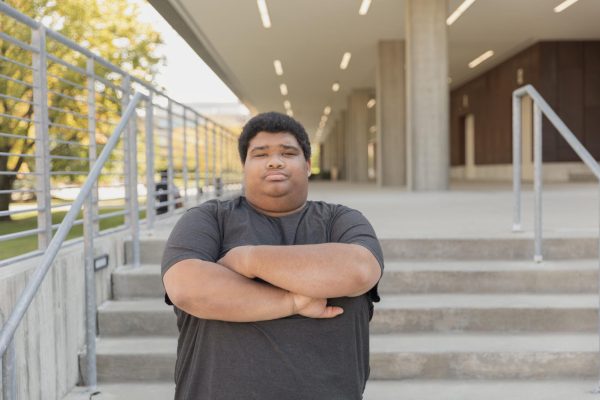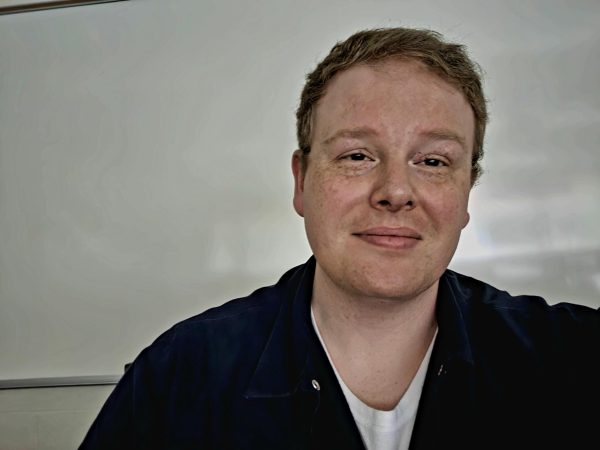Letter to the editor: Should I stay or should I go?
For many who followed the recent contract negotiations between the faculty and the Board of Trustees/Administration of Oakland, the tentative agreement reached on September 4th might suggest, the struggle is over. This is not the case for me and many of my colleagues. Right now, many of us are wondering, in the question made famous by the British punk band The Clash, “Should I stay or should I go?” This question takes different forms for different members of the faculty. For me, I wonder if it’s time to retire. If you had asked me three or four months ago about my retirement plans, I would have replied something like, “I’ll be here ‘til the end of time.” Retirement was a remote possibility for me because I love teaching. So while it pained me to see practices and customs on campus that I treasured undermined by different policies and developments announced by the administration here—the hiring of former Chrysler executive Scott Kunselman from the Board of Trustees to the position of Chief Operating Officer on campus comes to mind– the joy of teaching always drowned that out.
The contract negotiations ruined all that. The University’s declaration in an email of September 313 that “University administrators want to be clear that OU’s outstanding faculty are highly valued,” was unconvincing. It’s as though the University, or the author of the email, was unable to say who and certainly not able to say that the administrators value the faculty. Of course, this is not just about poor communications. The University’s bargaining positions and the terms of the contract make clear just how much the Board of Trustees and the administration value the faculty (a. (And it’s not very much). All their assertions of valuing faculty and their whining that economic difficulties brought about by declining enrollment necessitated unfavorable financial offers are undermined by the outrageous spending on salaries and benefits of existing administrators and the creation of new administrative positions. When Kunselman, the first of the unnecessary highly paid administrators, retired, the president announced that his role had “been to run the internal operations of OU.” The announcement listed many of his responsibilities, but none of them had anything to do with the university’s central academic mission. Does that leave faculty and students outside of “ internal operations”?
I want to be clear. It’s not the money that bothers me. I don’t care that much about my salary. I didn’t become an English professor to get rich. When the University says “faculty are highly valued” while pushing to cut their compensation while increasing the compensation of the administrative elite class, I don’t believe it. More importantly, when the administration and the Board tries to wrest complete control of academic decisions like which courses should be taught online and which in person, their actions tell me unambiguously just how much they value us. When I consider the contract negotiations, I see it as an exercise in domination—as if the University leadership will only be happy when we’re on our knees.
So, I ask myself, “Should I stay or should I go?” I’m probably staying, at least for a while. I’ve got nowhere to go, and nowhere I’d rather be than here, teaching the students in my classes. What would happen, however, if I were to decide to retire sooner than later? Not much. If, however, a fair number of the colleagues who have told me that they are also thinking seriously about retiring or leaving Oakland for some other university, Oakland would suffer irreparable damage.
Why would OU suffer? Because the kind of professors who make universities thrive (the kind we have) would not want to board a sinking ship. Why would a professor who has options come to a place other professors are fleeing? Most professors join a faculty because they want to spend their careers there. Generally, the longer someone stays at a university, the more difficult it is to leave. There are lots of reasons for this. One is that we come to love the places where we invest our lives and energies. Another reason is that professors become entangled with the communities on and off campus. They pick up partners, spouses, children, colleagues, friends, and relations with organizations and groups in their communities. Another reason is that universities, for the most part, want to hire young faculty at the beginning of their careers. Hiring someone with tenure is both more expensive and riskier (will the person stay? Will they continue to teach and publish successfully?). And finally, faculty come to love the students they teach.
Recently, in a course on “Love and Political Violence” I am teaching with my colleague Jeff Insko, we were trying to help students make a connection between Frankenstein (a novel most of them had read before), the Luddites (a group of angry weavers who set out to destroy the machines that displaced them from their jobs), and the world we all live in. We could see the fire in their eyes as they came to see the novel in a new way—and, just as importantly, came to see how understanding the novel involves understanding what a community is, and what happens when a community fails. At one point in the novel, the creature meets Victor Frankenstein in the Alps and explains his predicament: (he’s miserable, alone, shunned, abandoned, detested by all who see him). Victor responds: “Begone! I will not hear you. There can be no community between you and me.” As we discussed this dilemma, there was not only fire in our students’ eyes, but brilliance in their comments. Their own (our own) experience of being embraced by a community and feeling alienated by a community brought them to a point where they could feel connected not only to a monster, but to all sorts of others they imagine themselves in relation to, others who suffer at the hands of communities that will not hear them: dolphins, victims of police violence, geese, laborers, wild rice, chimpanzees. We had, in fact, ourselves created a community, a community sophisticated enough to consider the violence even a loving community can sometimes inflict upon those it can’t or won’t hear. Why would I want to leave that community?
Of course, unlike Shelley’s creature, I am not abandoned, alone, or “miserable beyond all other living beings.” I do know, however, what is means to be unheard. I don’t need or care about the approbation of the Board of Trustees. If Oakland University is to thrive, however, it desperately needs a Board of Trustees that listens to faculty. It requires a monstrous arrogance, for instance, for the Board of Trustees and the administration to think that they are qualified to decide which courses would be best taught online and which in person. Some might say I am griping about non-issues because OU conceded that point in the bargaining. But the fact that someone failed in their attempt to rob my house doesn’t make them any more trustworthy. Oakland’s bargaining team—presumably under the direction of the Board of Trustees—insisted on this point until the very end of negotiations. Refusing to listen to the faculty, the Board essentially declared there could be no community.
I wish the Board of Trustees had the courage to explain and defend their views in public. If there are reasonable, defensible arguments for demanding that bankers make decisions about how biology and political sciences should be taught, let’s hear them. Otherwise, we are left to speculate about the motives behind their proposals—and speculation breeds suspicion and mistrust. It would be great to have public conversations about these matters, but conversations require a community—or at least an agreement to speak and to listen. This failure of a community does not bode well for the future of the community. This leaves many of us wondering, “Should I stay or should I go?”






Pissed-off faculty • Sep 19, 2021 at 4:19 PM
I can only imagine what will happen once they promote Cunningham to the VP for HR. These negotiations must have been a proving ground of her abilities to do whatever it takes to please the higher-ups and advance her career.
OU Faculty • Sep 19, 2021 at 2:58 PM
So well said, thanks Robert. Everything you stated resonates with me. I LOVE teaching and love connecting with students. But, this round of contract negotiations amongst the others in my 10 years seems especially hostile (especially the unnecessarily demeaning and uncontextualized email sent out on on Sep 3 to the whole OU community). I am abysmally deflated. I once could never imagine leaving OU. Now I can’t imagine staying for too much longer.
Anonymous • Sep 18, 2021 at 7:51 PM
As a Special Lecturer, my compensation is far less with no retirement benefits. And yet, I’ve turned down the opportunity to take a position in law enforcement, and another at a hospital. I’ve even turned down a position with another university. Positions, I might add, that paid far more with better job security than a Special Lecturer. I did so because I’ve genuinely loved teaching and being a part of the OU community. The creativity that goes into a lesson plan, seeing it work and the students actually understand it, providing letters of reference and being able to help someone achieve their dream career is incredibly rewarding. This particular Board of Trustees seems intent on taking away everything that makes teaching rewarding. For the first time in my life, I’m planning to leave. It will break my heart, but not as much as staying under the administration of this Board of Trustees.